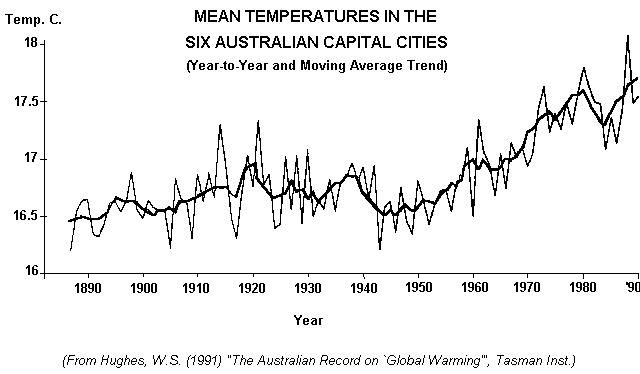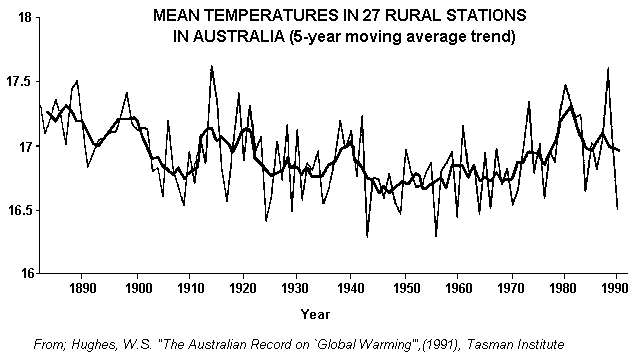See other Science/Tech Articles
Title: U.S. blacks face harsher climate change impact
Source:
Reuters
URL Source: http://www.alertnet.org/thenews/newsdesk/N29338814.htm
Published: Jul 29, 2008
Author: Deborah Zabarenko
Post Date: 2008-07-30 16:22:21 by Tauzero
Keywords: None
Views: 476
Comments: 26
U.S. blacks face harsher climate change impact WASHINGTON, July 29 (Reuters) - American blacks are likely to suffer disproportionately from climate change and they are willing to pay to combat it, a commission aimed at raising awareness about global warming said on Tuesday. "There is a fierce urgency regarding climate change effects on the African-American community," said Ralph Everett, the co-chair of the Commission to Engage African-Americans on Climate Change said. "People need to understand what is at stake -- our very health and well-being." Blacks are more than twice as likely as whites to live in cities where the so-called heat island effect is expected to make temperature increases more severe, the newly formed group said at a briefing. More blacks also will be "fuel poor" as energy demand rises due to higher air-conditioning loads, population growth and urbanization, commission said. In a survey of 750 U.S. black adults released by the commission, 81 percent said the U.S. government should take strong action to deal with global warming, and seven in 10 said it was very important for the 2008 presidential candidates to do something about it. A solid majority, 64 percent, of those surveyed by telephone between June 20 and July 3 said they would be willing to pay an additional $10 a month to fight global warming. Twenty-eight percent were willing to pay an added $25 a month and only 14 percent were willing to pay an extra $50. As expected, poorer respondents were willing to pay less, said David Bositis, who supervised the survey for the non-profit Joint Center for Political and Economic Studies, which launched the commission's effort. When asked an open-ended question about what they considered to be the most important problem facing the United States, 5 percent of respondents answered global warming. This has never been mentioned before as the top problem by any black respondents in surveys in 2000, 2004 and 2007. In this survey, 42 percent listed the economy as the most important problem, followed by 17 percent answering energy. The 5 percent who considered global warming paramount compared with 8 percent who said the Iraq war and 3 percent who answered education. Bositis said most U.S. surveys and polls have such a small number of black participants that it is difficult to separate out black attitudes. The commission aims to draw African-Americans into the climate change debate and to involve the black community in economic opportunities of the green economy. (Editing by Bill Trott)
29 Jul 2008 17:32:07 GMT
Source: Reuters
By Deborah Zabarenko, Environment Correspondent
Post Comment Private Reply Ignore Thread
Top • Page Up • Full Thread • Page Down • Bottom/Latest
#1. To: Tauzero (#0)
Truly, one cannot even conceive of this shiite. Beyond bizarre.
STOP THE SHIT, PLEASE?
Oh yeah? ULTRAVIOLET (UV) RADIATION WARNING http://www.epa.gov/sunwise/uvindex.html
They're African-Americans, they're supposed to have a higher tolerance to the heat than European-Americans.
Liberty means responsibility. That is why most men dread it.
But now we can have our watermelon and eat it too.
Liberty means responsibility. That is why most men dread it.
Maybe if it was global cooling.
It's hot now but that is normal for middle of summer. Just wait a few months and this global warming crap will subside. A few more months after that they will claim the record cold tempreatures are caused by global warming. They have no shame.
God is always good!
In a survey of 750 U.S. black adults released by the commission, 81 percent said the U.S. government should take strong action to deal with global warming, and seven in 10 said it was very important for the 2008 presidential candidates to do something about it. Come to think of it, what's wrong with having the Clintons buy me a oscillating fan? Don't answer that. :)
And they write innumerable books; being too vain and distracted for silence: seeking every one after his own elevation, and dodging his emptiness. - T. S. Eliot
Sounds like you belong in a Freedom & Liberty Camp, honkey.
Hillary promised she'd give me a Brumski if I'd vote for her.
you continue to make my posting experience less than enjoyable.
Shouldn't congress apologize for this?
i thought african americans didn't do cold? ;)
Do You Know What Freedom Really Means? Freedom4um.com
If you knew how much Blackwater, Halliburton, Exxon/Mobil and Abe Foxman was paying me to do it, you'd really be pissed. :P
Shouldn't congress apologize for this? Right after the sun.
And they write innumerable books; being too vain and distracted for silence: seeking every one after his own elevation, and dodging his emptiness. - T. S. Eliot
You'll learn soon enough not to base your worldview on Hollywood stereotypes.
And they write innumerable books; being too vain and distracted for silence: seeking every one after his own elevation, and dodging his emptiness. - T. S. Eliot
What is that, some sort of hair-do?
And they write innumerable books; being too vain and distracted for silence: seeking every one after his own elevation, and dodging his emptiness. - T. S. Eliot
And they write innumerable books; being too vain and distracted for silence: seeking every one after his own elevation, and dodging his emptiness. - T. S. Eliot
I know this Obama.
How much for the little girl? Sell me your children!
And they write innumerable books; being too vain and distracted for silence: seeking every one after his own elevation, and dodging his emptiness. - T. S. Eliot
Think boobs. B-B-B-B-B-B-B-B-B-B-B-B!
I have these graphs that I use when talking about the heat island effect. Most of the tempurature gages they use to determine global temp are in urban areas. Those that aren't still are near asphalt or down wind from AC units. Sigh. I'm a sucker for a graph. My knees go all wobbly and my stomach gets all fluttery.
Liberty means responsibility. That is why most men dread it.
#2. To: Tauzero (#0)
"There is a fierce urgency regarding climate change effects on the African-American community," said Ralph Everett, the co-chair of the Commission to Engage African-Americans on Climate Change said. "People need to understand what is at stake -- our very health and well-being."
#3. To: Tauzero (#0)
Blacks are more than twice as likely as whites to live in cities where the so-called heat island effect is expected to make temperature increases more severe, the newly formed group said at a briefing.
 http://www.epa.gov/sunwise/uvindexmap.html
http://www.epa.gov/sunwise/uvindexmap.html 
#4. To: Tauzero (#0)
Blacks are more than twice as likely as whites to live in cities where the so-called heat island effect is expected to make temperature increases more severe, the newly formed group said at a briefing.
 “The best and first guarantor of our neutrality and our independent existence is the defensive will of the people…and the proverbial marksmanship of the Swiss shooter. Each soldier a good marksman! Each shot a hit!” Schweizerische Schutzenseitunt (Swiss Shooting Federation) April, 1941
“The best and first guarantor of our neutrality and our independent existence is the defensive will of the people…and the proverbial marksmanship of the Swiss shooter. Each soldier a good marksman! Each shot a hit!” Schweizerische Schutzenseitunt (Swiss Shooting Federation) April, 1941
#5. To: Jethro Tull (#2)
It's Urgent!
#6. To: X-15 (#4)
They're African-Americans, they're supposed to have a higher tolerance to the heat than European-Americans.
#7. To: Tauzero (#0)
U.S. blacks face harsher climate change impact
I've already said too much.
#8. To: Tauzero (#0)
#9. To: Tauzero (#0)
More blacks also will be "fuel poor" as energy demand rises due to higher air-conditioning loads, population growth and urbanization, commission said.
#10. To: Jethro Tull (#2)
STOP THE SHIT, PLEASE?
#11. To: Dakmar (#9)
#12. To: Esso (#10)
#13. To: Tauzero (#0)
American blacks are likely to suffer disproportionately from climate change
#14. To: Tauzero (#5)
#15. To: Tauzero (#0)
#16. To: Jethro Tull (#12)
you continue to make my posting experience less than enjoyable.
#17. To: Sonovademocrat (#13)
American blacks are likely to suffer disproportionately from climate change
#18. To: christine (#15)
i thought african americans didn't do cold? ;)
#19. To: Esso (#11)
Hillary promised she'd give me a Brumski if I'd vote for her.
#20. To: Dakmar (#17)
#21. To: Jethro Tull (#20)
want to race bling?
#22. To: Dakmar (#21)
#23. To: Jethro Tull (#22)
#24. To: Dakmar (#19)
What is that, some sort of hair-do?
#25. To: Tauzero (#0)


"You have delusions of adequacy."
#26. To: farmfriend (#25)
Top • Page Up • Full Thread • Page Down • Bottom/Latest